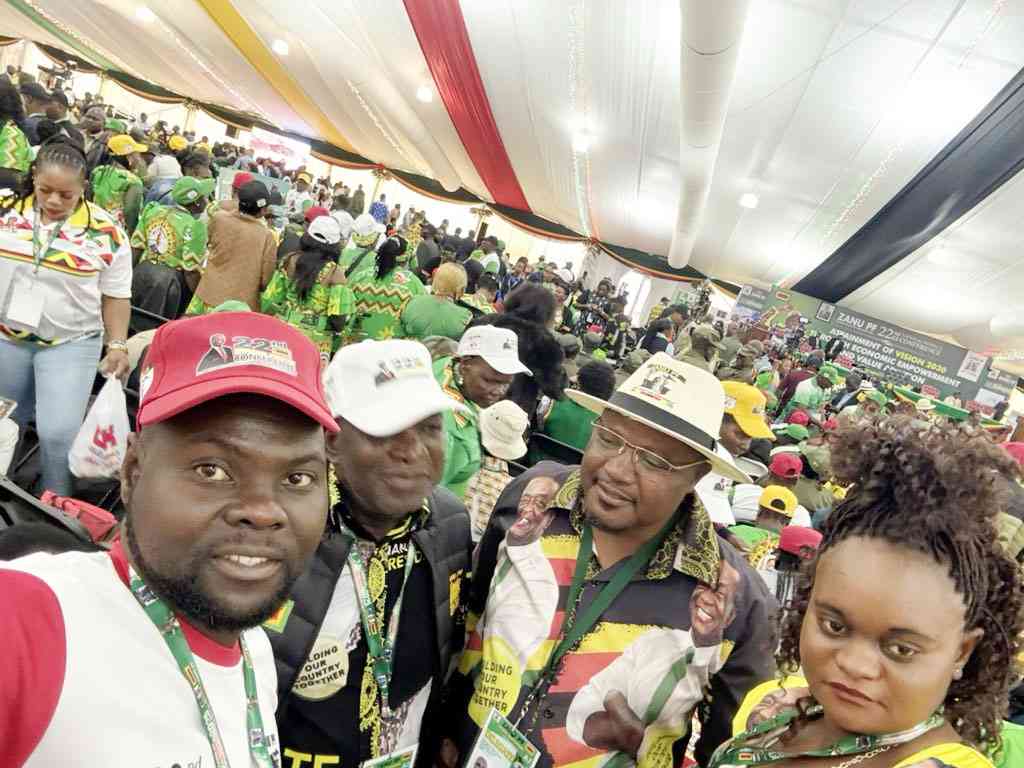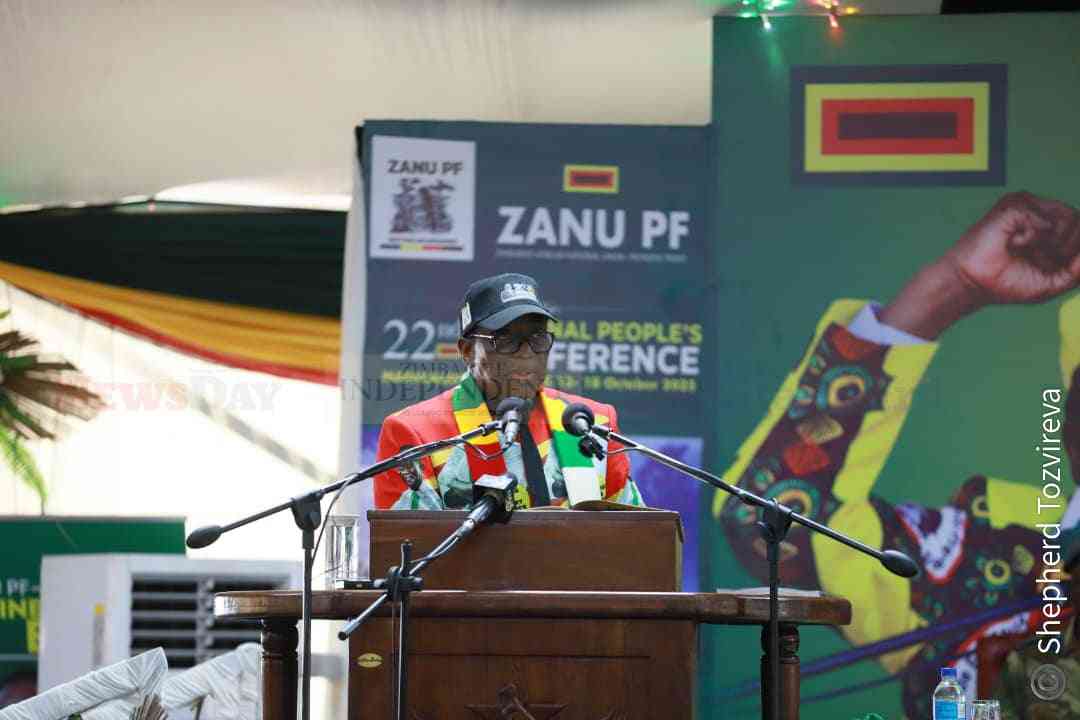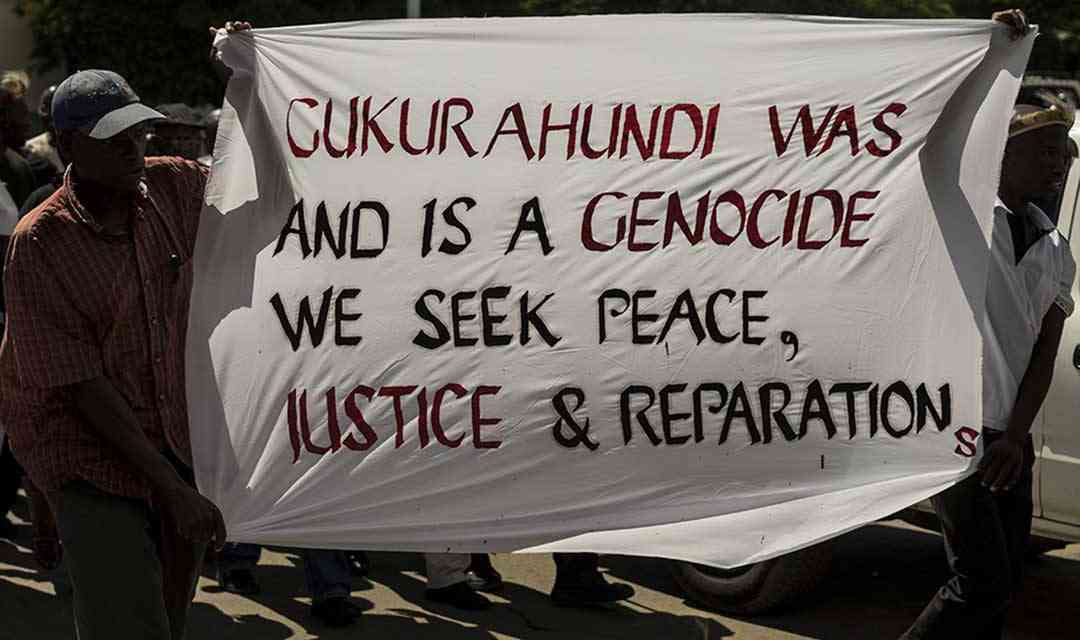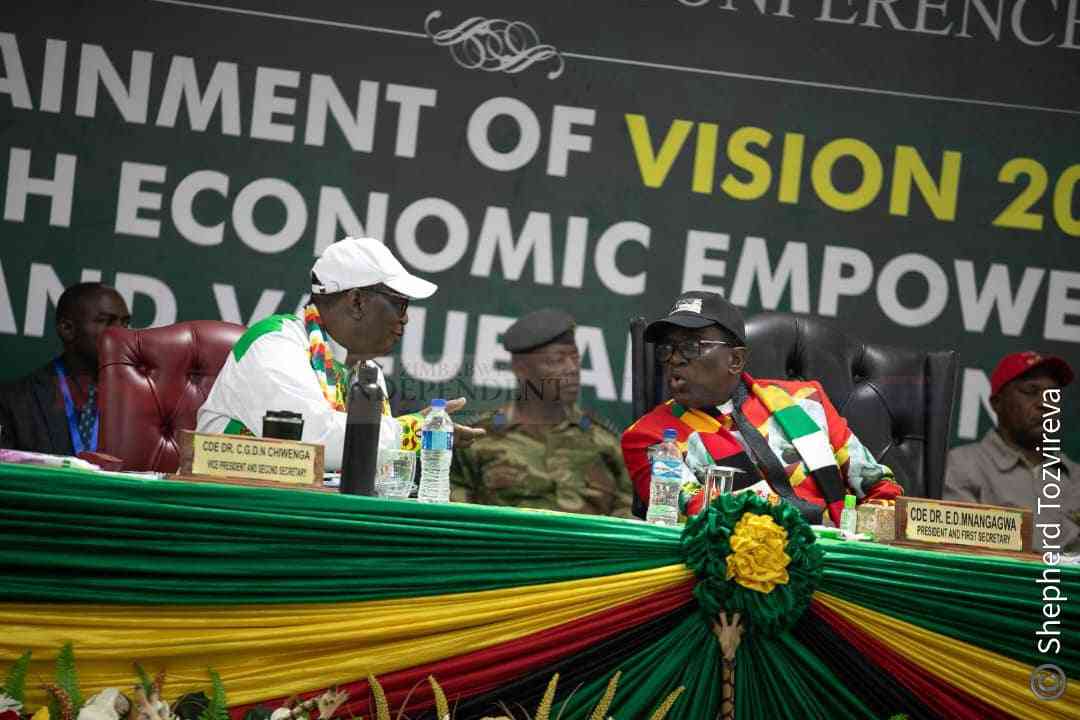
Once again the power of international solidarity has helped secure the release of activists supporting the global fight for popular mining sovereignty and basic human rights. 24 activists from eight countries, including Latin America, South Africa and Zimbabwe were arrested in Marange, while visiting a diamond mining area. This incident is yet another painful example of human rights violations perpetrated by states and mining companies around the world. It is also testament to the strength and importance of the solidarity network that unites people of the world defending territories and collective rights.
The history of Diamond mining can only be described as bloody. And diamond mining in Zimbabwe is no exception. In 2001 diamonds were first discovered in the Marange area in Eastern Zimbabwe. Since then these diamond field has been beset by conflict, bloodshed, forced labor and government crackdowns. According to one industry expert the Marange diamond area is the richest diamond field ever seen. Not only do the local communities see very little of the benefits of this natural resource on their land, they suffer immeasurably as a result.
This is, sadly, a classic example of natural resources captured and controlled by corporations and the state, at the expense of the peoples, their land, heritage, livelihoods, traditions and well-being. Zimbabwe’s mining story, is yet another example of why we need a legally binding treaty to stop corporate and state violations of human rights.
De Beers held exploration rights for the Marange diamond fields until this expired in 2006 and African Consolidated Resources (ACR) took over the rights. In June 2006 the Zimbabwean government aware of a diamond find, declared the “diamond fields open to anyone“; the diamond rush began. It was at this point that artisanal mining also exploded in a country pushed to the brink by its crumbling economy.
“People from all over Zimbabwe flocked to Marange to dig for diamonds as the country’s economy crumbled. The government responded with a brutal military crackdown, leaving hundreds of miners dead.” – Global Witness
In the later stages of 2006 the government tried to clean up the diamond rush, in a shocking display of state persecution of its peoples. First the state–owned Zimbabwe Mining Development Corporation (ZMDC) was granted sole rights to the diamond fields, then in November the state launched operation Chirorokoza Chapera (End to Illegal Panning). According to Human Rights Watch approximately 9,000 Marange miners were arrested in an “operation marked by human rights abuses, corruption, extortion and smuggling.”
What followed was two years of killings, sexual abuse, exploitation and human rights abuses. Eventually the Zimbabwe Defense Force was deployed.
“2008 saw a massacre of over 200 artisanal diamond diggers and the torture of thousands by military forces.”
- Mavhunga puts DeMbare into Chibuku quarterfinals
- Bulls to charge into Zimbabwe gold stocks
- Ndiraya concerned as goals dry up
- Letters: How solar power is transforming African farms
Keep Reading
In just one example of the abuses endured by Zimbabweans, John Gwite explained to the Zimbabwe Independent how he was cleaning the community well with three other people near the Mbada mining concession in Marange, when they were accosted,
“Mbada security guards, who knew us so well, then approached us and accused us of trying to mine diamonds in their concession when it was clear we were clearing a well. We were made to crawl and were frog-marched on the concrete pavement for some considerable distance and a long time. In the process we were beaten by soldiers at the base who took turns to assault all over our bodies, including the backbones, as we were lying on our stomachs. They concentrated on beating us on the backbones.”
As is typical when the state and corporations have a stranglehold on natural resources, the abuses do not stop at the physical. All rights of the people are threatened – livelihoods, homes, ancestral land that is stolen from the people,
“In Chiadzwa, thousands of villagers were evicted and promised compensation, but only a few got houses in Arda Transau while the rest are still wallowing in poverty.”
The Chiadzwa crackdown was commemorated in 2010 not just as a reminder of what happened, but as
“a warning about what the combined force of extractive industries and the state can do in pursuit of wealth. We are saying what happened in Marange can happen anywhere. It’s also a warning to those who committed these atrocities that we haven’t forgotten, and one day the long arm of the law shall catch up with them. It’s a cry for justice.”
Much of the coverage of these events misses the most important voice- that of the people.
“On a daily basis, Chiadzwa attracted thousands of impoverished yet enterprising Zimbabweans trying to eke out a living by panning diamonds.” Their only crime was, as the Zimbabwean reported, “tampering with the wealth that ‘belongs’ to Mugabe and his kleptocrats.”
In 2009 a Kimberley Process (KP) review mission visited the area, and private investors Mbada Diamonds and Canadile Miners were assigned management of diamond resources in Marange. In August 2010, the first sale of Marange rough cuts was approved by KP. However during this period, the minister for mining was arrested and human rights abuses continued unabated. It was business as usual for corporate and state impunity. The Kimberly Process failed to bring justice to the people and accountability to the government.
“The country has been systematically plundered by an organised clique of greedy politicians, soldiers and unscrupulous corporate sharks who will become filthy rich at the expense of the poor majority who should benefit from the national resource.”
A big part of the solution for any community fighting for their rights, their land, and their lives, is solidarity and the sharing of knowledge, experience and tactics. In November a group of militants fighting for popular sovereignty in mining took part in a ‘mission of international solidarity to communities affected by mining in Zimbabwe, convened by the Network Dialogue with Peoples’ and hosted by the Centre for Natural Resource Governance (CNRG) in commemoration of the 9th anniversary since the Marange diamond fields massacre. Over 2000 people attended the event in memory of more than 200 miners and community members brutally killed during Operation Hakudzokwi (Operation No Return). The meeting was to “to gather the community’s opinion on the impact of mining and come up with a petition to demand development in the area using proceeds from the diamonds.”
But as the meeting started on 10 November, the Marange police promptly arrested all foreigners, holding them at the Mutare Police Central Office. 24 people in total were arrested, including the Brazilian activists Frei Rodrigo Peret, a militant of the Pastoral Land Commission of Uberlandia, Minas Gerais state, Maria Julia Gomes Andrade and Jarbas Vieira, the latter two members of the Movement of People Affected by Mining (MAM) and members of the secretariat of the Committee in Defence of the Territories Facing Mining.
“For our liberation, international pressure and the support of many organizations that were sympathetic to the situation were fundamental. We highlight the work of lawyers from Zimbabwean Lawyers for Human Rights, who mobilized from the outset and accompanied the entire group throughout the process. We also emphasize the firm performance of the Brazilian Embassy in Zimbabwe, which has done much to mediate the resolution.”
The recently released activist and social movement leaders reaffirmed the need to remain vigilant until everyone returns safely to their home countries as well as a need to continue the support and solidarity of affected communities in Zimbabwe.
“In the two sessions of the Southern Africa Permanent People’s Tribunal on Transnational Corporations, in 2011 and 2012, the people brought 17 cases with strong evidences of violations and crimes against human rights where corporations rape the land and take our natural resources with impunity. The jurors’ statement was unanimous in stating that this is due to the current SADC corporate-driven development, and governmental economic policies that are supported by an increased militarization, where profits are more important than people. Sadly, those are the same governments that signed “The African Charter on Human and Peoples’ Rights” that goes against everything that is happening today.
Bringing those cases to the PPT strengthened our struggles against corporate impunity, being mining, megadams, agribusiness, oil or gas. It is a struggle of peoples resisting all types of corporate control and defending our life, our territories and our common goods.”
Indeed the African Charter on Human and Peoples’ Rights, an “international human rights instrument that is intended to promote and protect human rights and basic freedoms in the African continent,” states categorically that, “All peoples shall freely dispose of their wealth and natural resources. This right shall be exercised in the exclusive interest of the people. In no case shall a people be deprived of it. In case of spoilation, the dispossessed people shall have the right to the lawful recovery of its property as well as to an adequate compensation.”
In the case of artisanal miners in Zimbabwe, the state and corporations are blatantly disregarding this charter.
“Artisanal miners and their communities continue to be harassed and tortured, money continues to be looted, forced labour goes on, and the rivers get filthier and filthier.”
“We are on the ground capacitating the villagers to make serious considerations before they are left homeless again. They may stall the process now because we are heading for elections, but shortly after the election, bulldozers will be deployed to Tsvingwe with gun-totting soldiers forming the advance team. Tsvingwe shall be another Marange. There shall be weeping and gnashing of teeth.”
These atrocities have to end: people should not have to weep and gnash their teeth to protect their human and sovereign rights. An international legally binding instrument to control transnational business operation is needed to end such human rights violations, deal with state and corporate impunity and to guarantee peoples’ right for self determination and a dignified life in a sustainable environment.
An international tribunal for transnational corporations and Human Rights, advocated by Friends of the Earth International in the ongoing UN Treaty negotiations at the Humans Rights Council, could provide victims of state and corporate abuses access to justice where violence and impunity reign. The growing movement to dismantle corporate power and end the impunity of transnational corporations is a guarantee that the mining industry’s crimes will not go unnoticed and the people of Zimbabwe and all around the world are not alone in their fight for justice.
“Zimbabweans must defend their land and properties with their lives against this most violent, grotesque, inhumane and environmentally catastrophic criminal activity called mining.”










